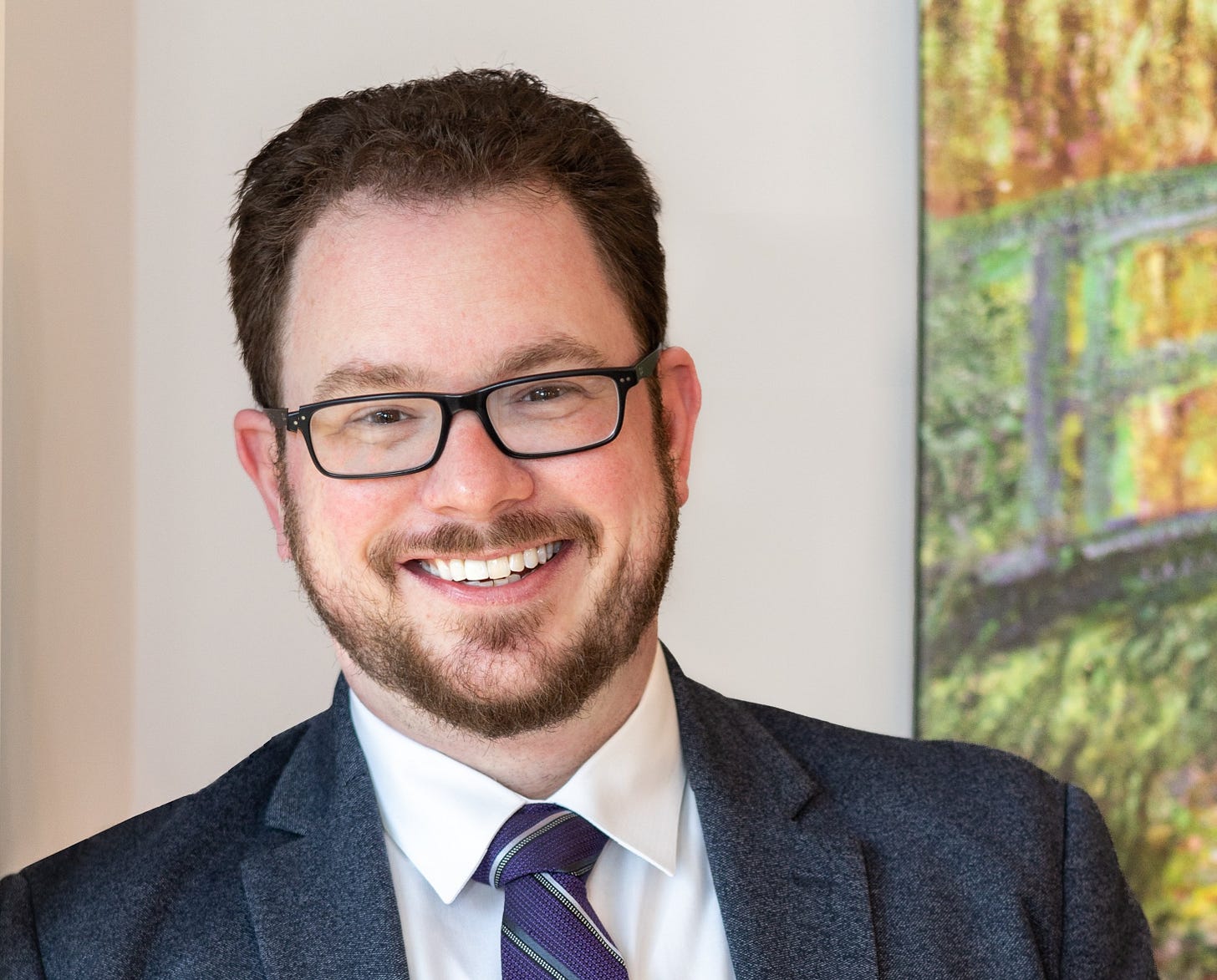History channels
FreeCons glean wisdom from the past to help America reach a brighter future
When we announced the Freedom Conservatism project two years ago, its origins were clearly stated. The rise of the nationalist-populist Right during the 2010s and early 2020s posed a threat to our nation’s constitutional order, economic prospects, and leadership in the world.
“To ensure that America's best days are ahead,” we wrote, its leaders must “apply the timeless principles of liberty to the challenges of the 21st century.”
One of our original signatories, John Tsarpalas of the Nevada Policy Research Institute, described our mission concisely: “It is through policies that encourage free-market solutions, protect individual liberties, eliminate unnecessary government restrictions, and seek equality of opportunity rather than equality of outcome that we can build a better America and offer hope of freedom and prosperity to all.”
Another signatory, columnist and podcaster Matt Lewis, put it this way: “We are neither right-wing nationalists or left-wing progressives. We are conservatives.”
And one of the project’s organizers, Avik Roy, outlined a strategy to “rebuild a majority coalition for the idea that has done more to expand social mobility than any other: individual liberty.”
“If you’re concerned that America’s commitment to freedom is waning, the solution is to expand the constituency for freedom, by using freedom to improve the lives of as many Americans as possible.”
Freedom Conservatism is a forward-looking movement. FreeCons offer specific, practical responses to today’s thorniest policy problems. But our work reflects a clear-eyed understanding of America’s history, a deep respect for America’s civic traditions, and a resolute defense of America’s governing institutions.
Today we feature FreeCon scholars whose study of history reveals essential lessons for today’s policymakers.
Genuine transformation
Rachel Ferguson is director of the Free Enterprise Center at Concordia University Chicago, coauthor of Black Liberation Through the Marketplace, and a FreeCon signatory.
An adjunct scholar at the Acton Institute, she previously served as a professor of philosophy and director of the Liberty & Ethics Center at Lindenwood University.
In a recent article in Christianity Today, Ferguson drew from her own research as well as historical accounts of public-assistance programs to call for a new approach to combating poverty.
“While critiques of the welfare trap might ring conservative in our ears, many on the Left are just as incensed at the way the system is set up, even if they’re more sanguine about broadening social safety nets,” she wrote.
For example, both Right and Left critique benefits cliffs, which make smart moves like work, promotion, and marriage economically irrational. And there’s a growing awareness of the role that community institutions and local leadership can play in reducing chronic poverty.
“Warm feelings about nice-sounding programs aren’t enough,” Ferguson concluded. “Genuinely transformative efforts are long, slow, and local. Those with middle-class backgrounds and college educations are not more capable than the men or women from the block when it comes to rebuilding poor neighborhoods.”
Lust for power
Lawrence W. Reed is president emeritus at the Foundation for Economic Education, former president of the Mackinac Center for Public Policy, and a FreeCon signatory.
Reed previously taught economics and chaired the economics department at Northwood University. A prolific writer and lecturer, he’s contributed to the The Wall Street Journal, Washington Examiner, USA Today, Christian Science Monitor, Detroit News, and many other publications.
In a July 4th-themed essay for The American Spectator, Reed described the many lessons the authors of the Declaration of Independence and U.S. Constitution drew from the constitution and history of ancient Rome.
“America’s Founders understood that, as Tacitus put it, ‘Lust of absolute power is more burning than all the passions,’” he wrote.
“They knew that free societies are rare in human history — in part because, as Sallust lamented, ‘Only a few prefer liberty; the majority seek nothing more than fair masters.’”
In another recent article, this one for FEE, Reed cited the ancient Chinese emperor Wang Mang as an example of tyrannical government run amok.
“Throughout history, governments that debase the currency routinely impose edicts and penalties to force people to accept it,” he wrote. “For the crime of using unsanctioned currency, one was lucky to be executed, because Wang’s government also enslaved the culprit’s family and the families of his five nearest neighbors.”
No quaint idea
Jay Cost is the Gerald R. Ford nonresident senior fellow at the American Enterprise Institute, a visiting scholar at Grove City College, and a FreeCon signatory.
A contributing editor at the Washington Examiner, Cost also contributes regularly to other media outlets. His books include The Price of Greatness: Alexander Hamilton, James Madison, and the Creation of American Oligarchy (2018) and James Madison: America's First Politician (2021).
In the essay he contributed to the “Next 250” project at The Dispatch, Cost wrote that the Founders were right to worry about the effects of excessive partisanship on the American experiment.
“The theories of republicanism they inherited from the Western tradition warned of parties and factions, but as they struggled to make self-government work in practice, they created the nation’s first parties,” he pointed out.
“Their equivocation provides a useful lesson to us on the role that parties should — and should not — play in the politics of a free society.”
Cost repeated Thomas Jefferson’s admonition that “every difference of opinion is not a difference of principle” and cited examples from the careers of Jefferson, Madison, and other leaders to distinguish between healthy party competition and toxic polarization.
“An idea like cooperation might seem awfully quaint in this 250th year of American independence,” he concluded, “but the author of the nation’s Declaration of Independence and the father of its Constitution took it seriously enough to build their administrations around it.”
In the mix
• In The Wall Street Journal, FreeCon signatory Mike Pence mourned the passing of Heritage Foundation co-founder Ed Feulner, whom he credited for challenging the “populist grievances and ideological drift” that have created “an existential identity crisis” for the American Right.
“We would do well to remember his example,” wrote Pence, the former vice president, governor of Indiana, and congressman. “Ed didn’t just build up institutions; he cultivated a movement that brought ivory tower ideas into the public square and never lost sight of the moral and spiritual foundations of liberty.”
“Ed had no patience for fleeting applause or fashionable causes. What concerned him, as always, was the long-term health of the American Republic, and the strength of the institutions that would defend it for generations to come.”
• In The Washington Post, FreeCon signatory Ilya Shapiro described what both the Right and the Left get wrong about Amy Coney Barrett and her tenure on the U.S. Supreme Court.
She is “an originalist with a strong devotion both to constitutional text and institutional procedure,” wrote Shapiro, director of constitutional studies at the Manhattan Institute and author of Lawless: The Miseducation of America’s Elites.
“She will join the conservative majority on the substance of issues that are squarely presented: overturning Roe v. Wade and Chevron deference, ending racial preferences in college admissions, upholding Second Amendment rights, preserving religious freedom, blocking President Joe Biden’s vaccine mandates and student-loan forgiveness, and giving Trump the immunity he needed to escape the lawfare he faced in the run-up to the last election.”
“But she’s also a stickler for prudence in the face of novelty. Forget the Trump 2.0 executive orders; traditional conservatives are still smarting over her opinion the previous term that dismissed allegations of tech-government collusion to censor Covid-related social media posts, as well as her decision this term to recuse in a religious charter school case, causing the court to deadlock 4-4.”
• At The Daily Economy, FreeCon signatory Iain Murray cited the rise of Zohran Mamdani as yet another depressing example of the process Murray described in his 2020 book The Socialist Temptation.
“One of the reasons why socialism never seems to die is that it plays a very good game at connecting with people at the values level,” wrote Murray, vice president and senior fellow at the Competitive Enterprise Institute.
Of course, its promises “don’t stand up when tested,” for “socialism betrays American values every chance it gets.”
• At Law & Liberty, FreeCon signatory Donald Bryson urged “No Kings” activists to abandon the French Revolution as a historical precedent and instead apply the lessons of the successful American Revolution.
“The road of history is fraught with political movements driven by passion, unmoored from principle, that tended to crown tyrants,” wrote Bryson, president and CEO of the John Locke Foundation.
“From Alcibiades, the self-serving populist of Athenian democracy, to Napoleon, to Fidel Castro, the crowd’s will has too often paved the road to centralized, unchecked power.
“America’s revolution was different because it did not just reject kings — it also rejected mobs. It chose a structure of liberty, not a spectacle of rage.”



